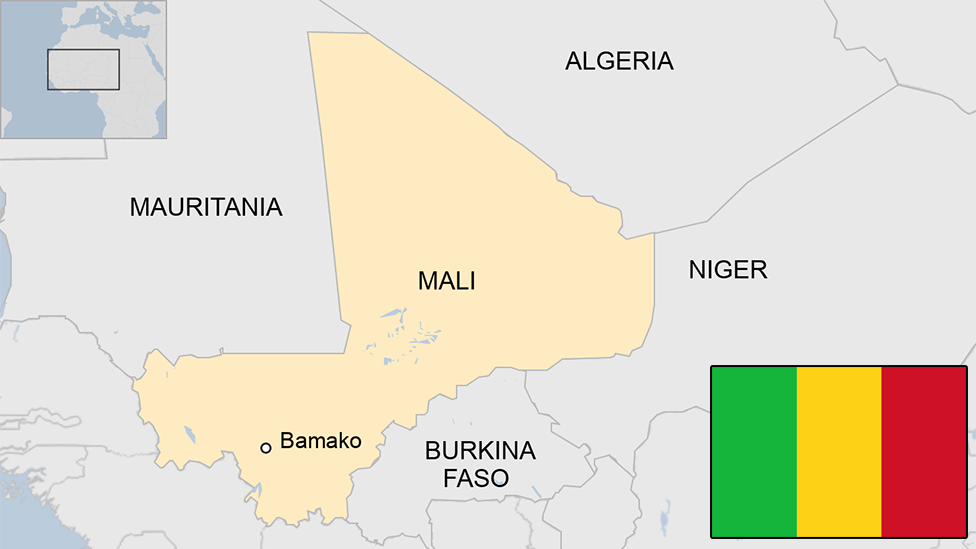Macron threatens to withdraw French troops from Mali
- Published
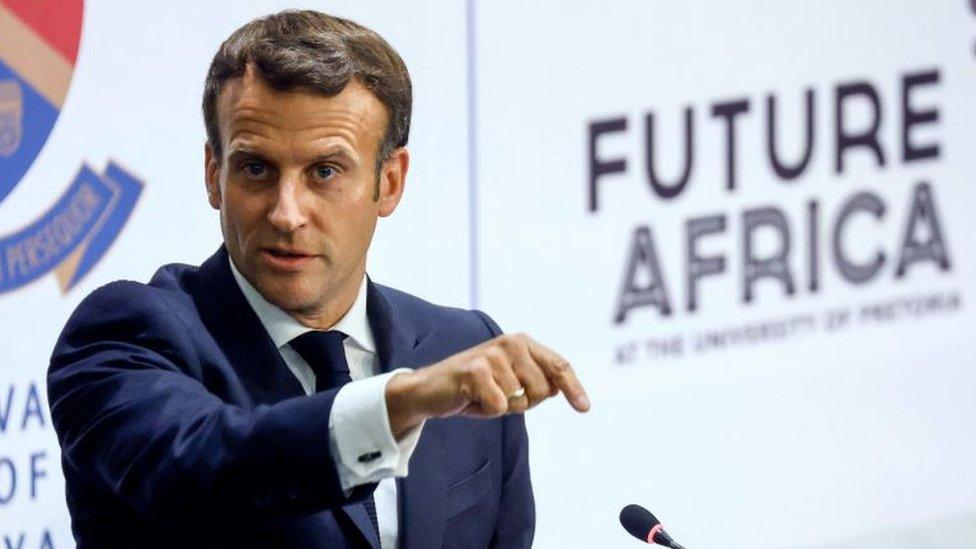
Mr Macron told West African leaders that French soldiers will not be in the region "forever"
President Emmanuel Macron has warned that France would withdraw troops from Mali if political instability there leads to greater Islamist radicalisation.
It follows a second coup in nine months in the West African nation.
Mr Macron warned of the risk of Mali "moving towards" greater Islamist influence.
France has 5,100 troops in the Sahel region which has been a front line in the war against Islamist militancy.
French troops have been supporting forces in Mali, Mauritania, Niger, Burkina Faso and Chad to battle militants in the Sahel region since 2013.
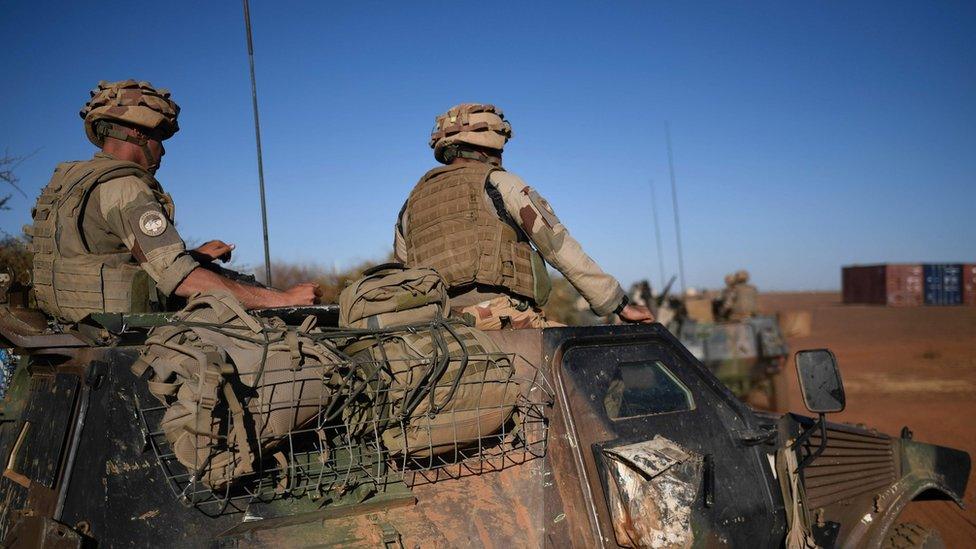
French troops are part of Operation Barkhane against militants in the Sahel
Mr Macron told Le Journal du Dimanche newspaper that he had told regional leaders that France would not support countries where there was no democratic legitimacy or transition, and that France had no intention of keeping its troops in Africa forever.
For decades France has provided military support to back leaders of its former colonies in Africa, often sending troops or despatching air strikes to counter armed rebels.

'Stuck between a rock and a hard place'
By Mary Harper, BBC World Service Africa editor
President Macron has for some time been muttering about reducing, or withdrawing, the more than 5,000 French troops in the vast and troubled Sahel.
Mr Macron is frustrated about a lack of commitment from most other European countries to fight the multiple militant Islamist groups in the region. They are considered a threat to Europe, both in terms of possible jihadist attacks on the continent and illegal migration.
But Mr Macron faces another dilemma related to recent political events in two countries where French troops are active, Mali and Chad. Mali has had two military takeovers in the past nine months. Chad has had one.
Mr Macron has been demanding an end to military rule in both. In Mali, he has threatened to withdraw French troops if the political chaos and uncertainty leads to an increase in radical Islam.
But he is stuck between a rock and a hard place.
Although French forces and their allies have failed to defeat the jihadists, who are becoming increasingly active in the Sahel and neighbouring regions, the fear is that, if France leaves, Islamist militancy will become even more rampant.

What is happening in Mali?
Coup leader Colonel Assimi Goïta was named transitional president by the constitutional court on Friday, two days after he declared himself the interim leader.
He defended the removal of President Bah Ndaw and Prime Minister Moctar Ouane as necessary because they had failed in their duties and were seeking to sabotage the country's transition.
Soldiers arrested and detained the two men after a cabinet reshuffle that Col Goïta said he was not consulted about.
He also led the coup last August, which saw the elected President Ibrahim Boubacar Keïta forced out of office.
Col Goïta has now promised that a new prime minister would be appointed within days, and that elections would still go ahead next year as planned.
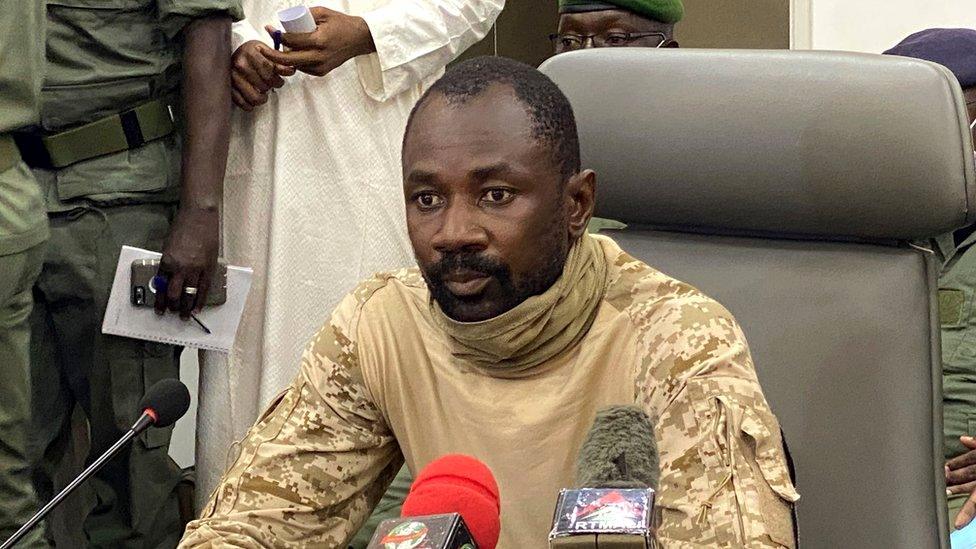
Colonel Goïta has led two coups in the last nine months
Meanwhile, regional leaders will on Sunday hold a "consultation" meeting in Ghana, which Col Goïta is expected to attend.
Why is Mali so unstable?
It is difficult to enact reforms quickly - and the vast landlocked country is poor, with large areas underdeveloped.
A coup in 2012 led to militant Islamists exploiting the chaos and seizing the north of the country.
French troops helped regain territory, but attacks have continued as the insurgents have capitalised on the persistent political instability in the region.
This has all led to public confidence waning over the army leaders' ability to tackle the Islamist insurgency that has spilled into neighbouring Burkina Faso and Niger.

You may also be interested in:
Five factors that made the coup last August against the former Mali President Ibrahim Boubacar Keïta more likely
Related topics
- Published27 May 2021
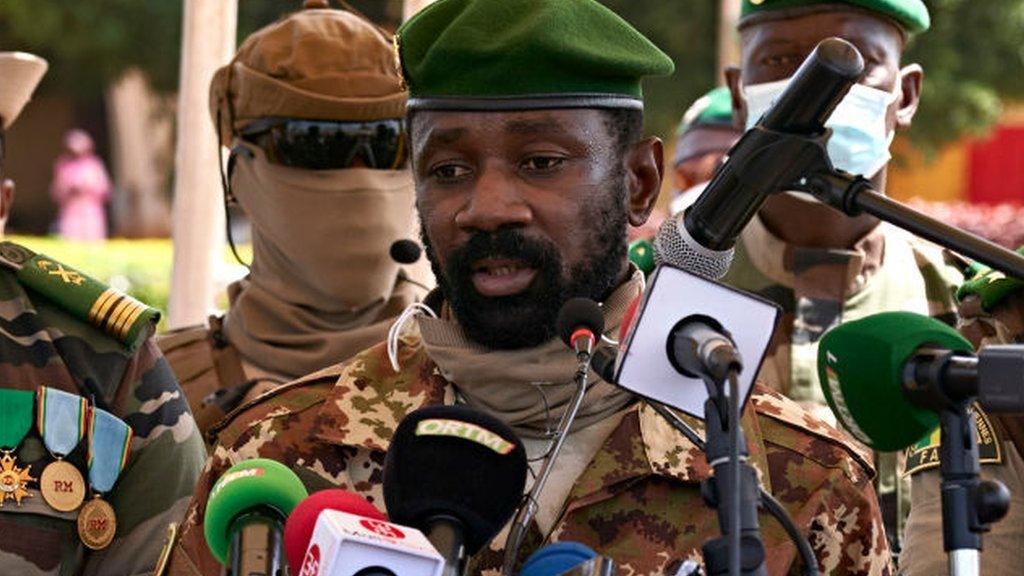
- Published12 September 2020
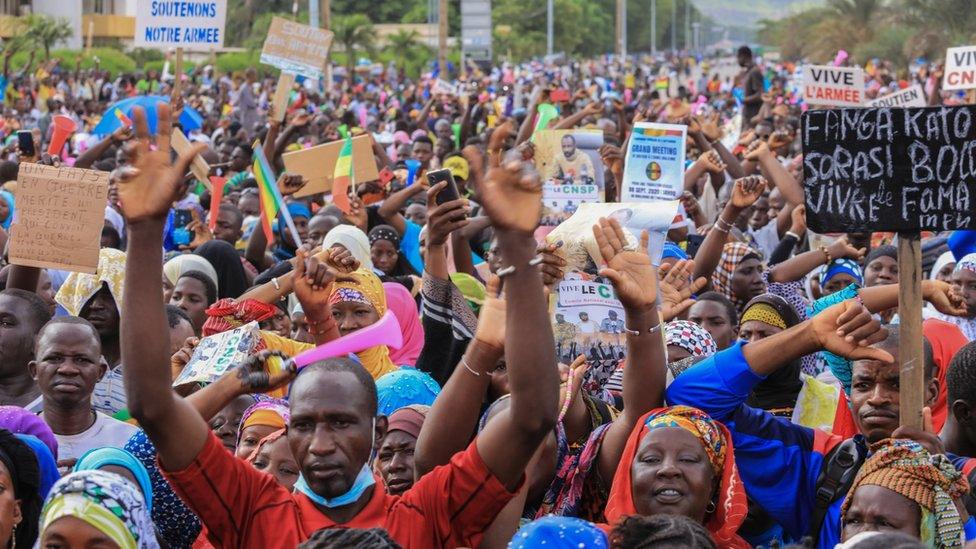
- Published21 August 2020
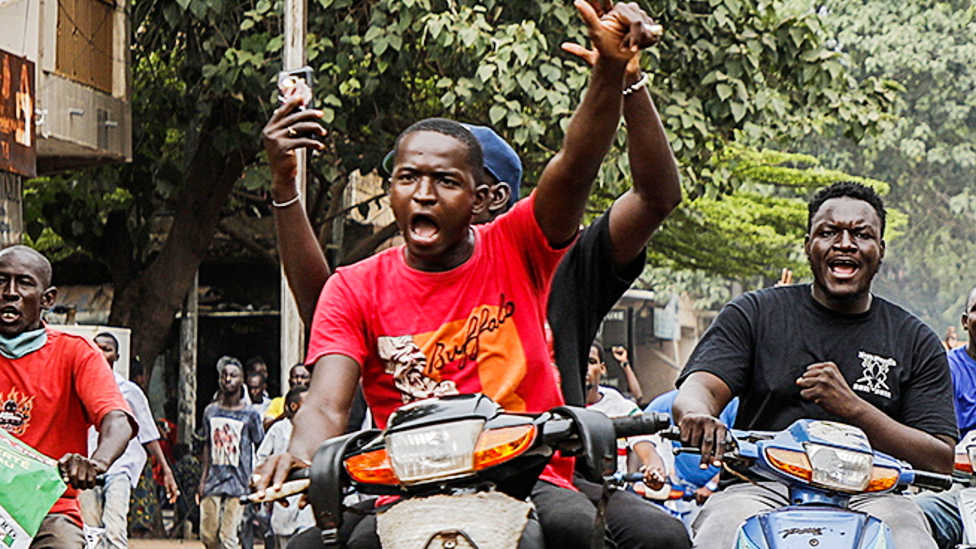
- Published28 July 2023
